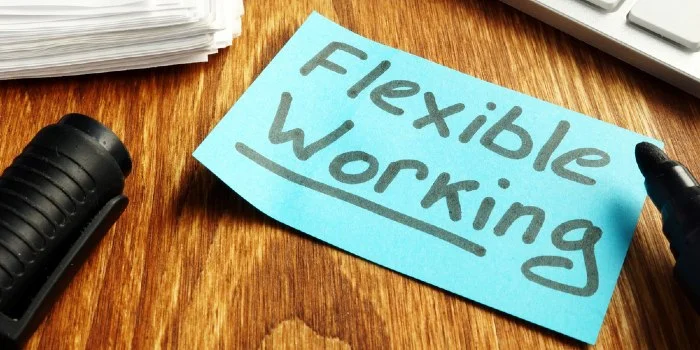So, you want to start your own business?
Exciting times: you’ve decided that you want to work for yourself! The reasons are many: You want to work on what you like and what you’re good at.
You want the freedom to work wherever and whenever you choose to and to control every aspect of your business. And you wish to choose your own customers.
Running your own business does, indeed, carry a number of benefits. However, it also carries risks and responsibilities. Yes, you will work for yourself and take all decisions.
However, that means there’s no one to stop you if you make a wrong choice. And yes, you will be the sole beneficiary of your successes. But you’ll also be personally liable for any debts you might incur.
To ensure your company’s success, you need to be aware of seemingly mundane issues like your legal or tax responsibilities. And the very first decision you’ll have to make, before you even start, concerns your ideal company formation.
This can be anything, from sole trader to LTD, PLC, LLP, Unlimited… the list goes on. So, how do you choose the one that’s right for you?
Well, let’s take a look at the legal obligations of sole traders to help you decide if that is the right route for you.
Legal requirements to start a business, applicable to all

There are a number of legal obligations that apply to sole traders (and many other types of businesses for that matter!). The good news is that they’re not too complex and mostly revolve around how you treat and record your finances. Here are the main ones.
Self-Assessment
The first thing to do once you have decided that you want to start your business as a sole trader is to register for Self-Assessment. Registering as a self-employed with HMRC is easy and quick.
Once you have registered, you will receive a Unique Tax Payer Reference (UTR). The UTR is a 10-digit number that is unique to you and helps HMRC identify you. You will need your UTR in order to file your tax form at the end of the financial year.
Keep in mind that you still need to register for Self-Assessment if you choose to work only part-time as a sole trader, while also keeping your day-job.
National Insurance
Once you have registered for Self-Assessment, you’ll need to register for National Insurance. There are two National Insurance contributions you will need to make: Class 2 and Class 4.
Class 4 National Insurance is automatically calculated once a year as a percentage of your profits. It will be automatically included in your taxes when you complete your self-assessment tax form.
Unlike Class 4, Class 2 National Insurance is a flat-rate contribution, calculated on a weekly basis. Even though the amount is relatively small, it’s important to register for Class 2, or you’ll be asked to pay for it all in a lump-sum in the future.
Also, you need to register for Class 2 National Insurance to qualify for state benefits. You can normally pay your Class 2 National Insurance through your Self-Assessment (although there are some exceptions).
Lost the buzz for your business?
Starting a business is exciting. Succeeding is rewarding. The bit between is hard, repetitive, and full of self-doubt.
The Lonely Middle Club (From Business4Beginners) helps you through it:
Get support and advice from other small business owners
Remove the self-doubt that’s holding your business back
Learn techniques and strategies to grow your business faster
Be inspired with our exclusive ‘swipe’ file and AI-powered tools
No pressure – work at YOUR pace, towards YOUR goals
—
Self-Assessment tax return
Your final legal obligation is to file with HMRC a self-assessment tax return. This form is used by HMRC to collect income tax on your profits.
As a sole trader, you need to fill in the tax return form at the end of the financial year (April 5th). Your income tax is calculated based on the profits you have filed. You need to pay the bill by January 31st of the next year.
Filling your tax return means you need to submit records of your sales and expenses as well as receipts and other pertinent records, so good bookkeeping is essential.
Additional legal requirements, applicable to some

While everything we have covered so far applies to all sole traders, there are some additional things you may need to consider depending on your circumstances. These include:
VAT
As a sole trader, it is not necessarily compulsory to register for VAT. Registering for VAT is optional up to a turnover of 85,000 pounds. Past this threshold, however, you have to register for VAT.
If you do, you will need to complete VAT return forms and update your bookkeeping records as well. You can register for VAT online, where you will receive your VAT number. Once you’ve registered, you’ll get an online VAT account through which you can submit your VAT returns.
So should you register for VAT? The answer isn’t as straightforward as you may think.
If your turnover is relatively low, you need to ask yourself about the costs and benefits. If you are not clear on whether you want to register for VAT, you should consider the following:
- Will you be doing business with other businesses? If yes, then registering for VAT even below the 85,000-pound threshold might be advisable. This way, you’ll be able to claim back the VAT on your purchases and pass on the VAT you’ll be charging your clients without increasing the cost of your own products or services.
- Some people perceive VAT-registered businesses as more trustworthy than non-VAT registered ones.
- You may need to pay an accountant to file your VAT returns. This could mean an extra cost for your business. Having said that, hiring an accountant from the start may save you a lot of money in the long run.
PAYE
As a sole trader, you can employ other people to help you in your business. You need to decide whether you want full-time or part-time employees. Or you may prefer to collaborate with freelancers.
If you choose to have employees in your payroll, you are legally required to register for PAYE (Pay As You Earn system). The PAYE means you will be collecting Income tax and National Insurance contributions from your employees, which you will then be paying to HMRC. You can register online for a PAYE reference number. You will also be required to set up an employer’s workplace pension scheme.
Before you employ personnel, you will need to consider the following:
- Will your business generate enough to pay them on a monthly basis? Your accounting bill may also increase if you include PAYE. If you choose to handle PAYE on your own, you may need to subscribe to an online bookkeeping service that also offers payroll services.
- You can’t set your own wages. You are legally required to pay your employees at least the minimum wage.
- Having employees working on your premises means you will need to get employers’ liability cover, which will increase your costs and expenses.
- There are other legal requirements when it comes to personnel, such as pension payments, maternity leave, and creating a safe workplace.
Licences
Most professions don’t require a licence. However, some do: selling alcohol, for example, requires a licence. Doctors, accountants, lawyers, and other professionals also require one. Before starting your business, you should check whether you require a licence.
You may also need various additional licences, depending on your line of business. For example, you may need one for the software packages you use in your business computer(s), the music you play in your shop, the e-mail list of clients to whom you will be sending promotional material (GDPR rules) or the photos you include in the websites you create for your customers.
Obviously, all these licences do not apply to all professions but being a sole trader does not mean you’re in any way exempt from needing one.
Recommended requirements

So far, we have focused on what your requirements are according to UK law if you are a sole trader. However, just because something isn’t legally required, it doesn’t mean you don’t have a responsibility to act in a certain way.
Here are some other things you may want to consider as they’ll give you far fewer headaches if kept in order!
Bookkeeping
You are legally allowed to do your own bookkeeping as a sole trader. Bookkeeping for sole traders is generally easy and straightforward. But using a freelance accountant has never been more practical.
It’s a practice which could save a lot of money down the line, besides keeping your bookkeeping always up-to-date and accurate. Your accountant can help you identify potential savings and be aware of any legal changes.
Also, you would never miss any fine-carrying deadlines. Bookkeeping accounting for sole traders is relatively affordable and the cost can be included in your business expenses.
Top-Rated Accounting Software:
| Accounting Software | Cheapest Package | Ease Of Use | Our Rating | Review | Official Site |
|---|---|---|---|---|---|
 | £19/mo | Excellent | 9.4 | Read Review | Visit Website |
 | FREE | Outstanding | 9.3 | Read Review | Visit Website |
 | £12/mo | Excellent | 9.3 | Read Review | Visit Website |
Extra insurance
Just like bookkeeping, extra insurance is not compulsory. However, it would be a good idea to include it in your expenses.
Remember that you are personally liable for any debts, legal claims or accidents that might occur in your business.
For instance, you may consider:
- Public liability insurance: what if a customer came to your shop and got injured? Unless your clients never visit your office, this is one of the most common—and affordable—kinds of insurance for any business.
- Professional indemnity insurance: what if a client sued you because they are not happy about the work you’ve provided?
There are many other types of insurance, such as fire insurance for your building, your tools or your machines. Deciding what you need to cover depends on your line of work and your finances.







